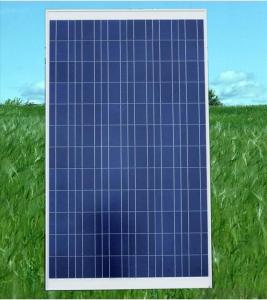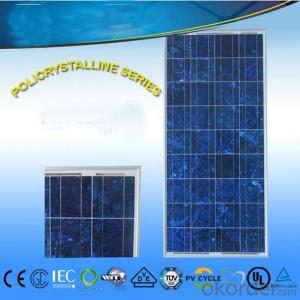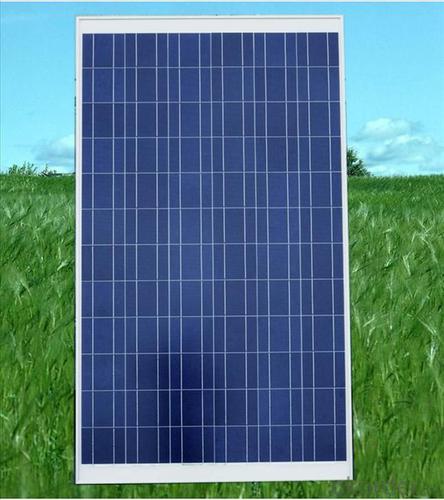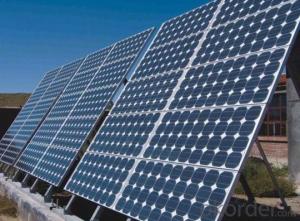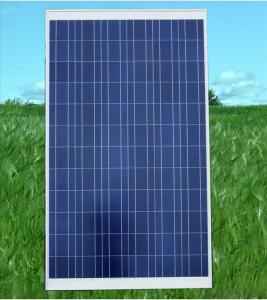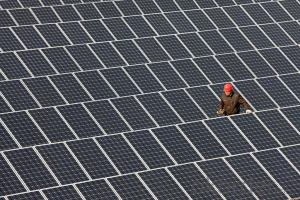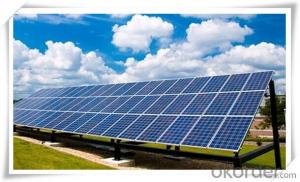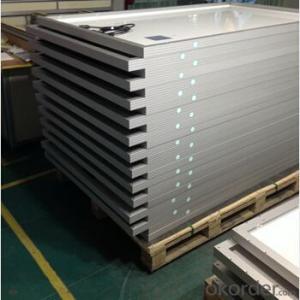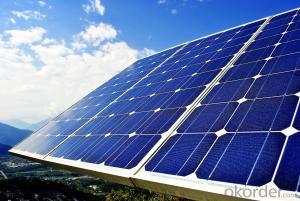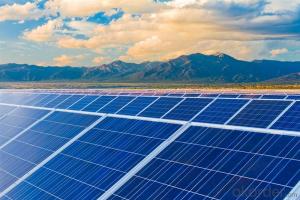CE and TUV Approved 255W Mono Solar Panels Ipswich
- Loading Port:
- Shanghai
- Payment Terms:
- TT OR LC
- Min Order Qty:
- 10000 watt
- Supply Capability:
- 1000000 watt/month
OKorder Service Pledge
OKorder Financial Service
You Might Also Like
Specification
1. Detailed Introduction for Mono solar panel
Type | CNBM Solar Monocrystalline Series |
Materials | Silicon |
Guarantee | 12 yrs free from defects in materials and workmanship No less than 90% within 10yrs and no less than 80% within 25yrs TUV(IEC61215&IEC61730), CE, UL |
Application | Photovoltaic/ solar/ green energy/ energy saving |
Descriptions | 1.High efficiency crystalline silicon solar cell. Even if under the weak light, the solar module can produce maximum power output. 2.Tempered glass (toughened glass): Anti-reflecting coating and high transmission rate glass increase the power output and mechanical strength of solar module. 3. EVA and TPT: Using high quality EVA and TPT to prevent destroying and water. 4. AI frame: Without screw, rner connection. 6 holes on the frame can be installed easily. 5. Junction box: Multi function junction box with water proof. 6. Long lifetime: ≥25 years; Less power decrease. 7. Good performance of preventing from atrocious weather such as wind and hails. 8. Resisting moisture and etching effectively, not effected by geology. 9. The certificate issued by international authority: UL, TUV, IEC, CE.
|
Packaging Details: | 26pcs/pallet, 28pallets/ 40HQ Our solar panels are packed in cartons, and then pallet. Shipping by sea or by air are both ok, it up to customer’s chose. We’d like to inquiry the freight cost for customer after be informed exact quantity and destination address. |
2. Technology
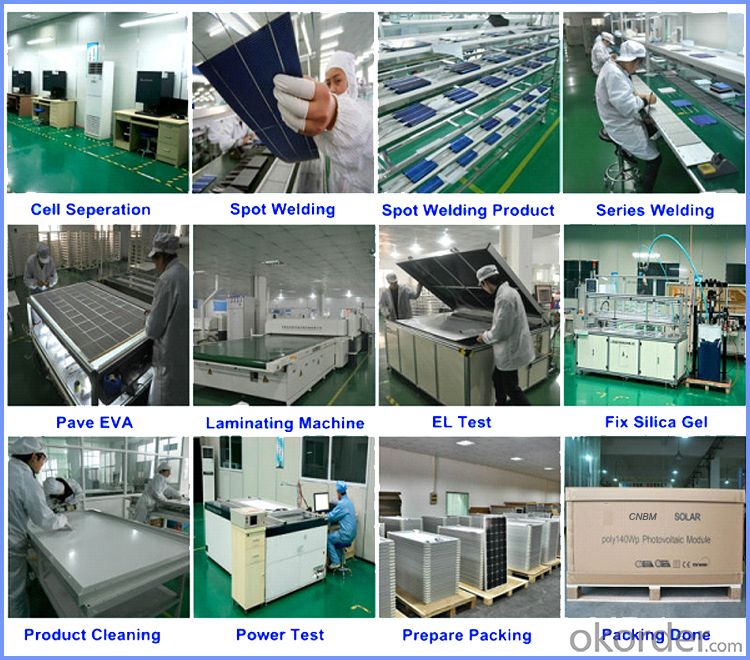
3. Use For
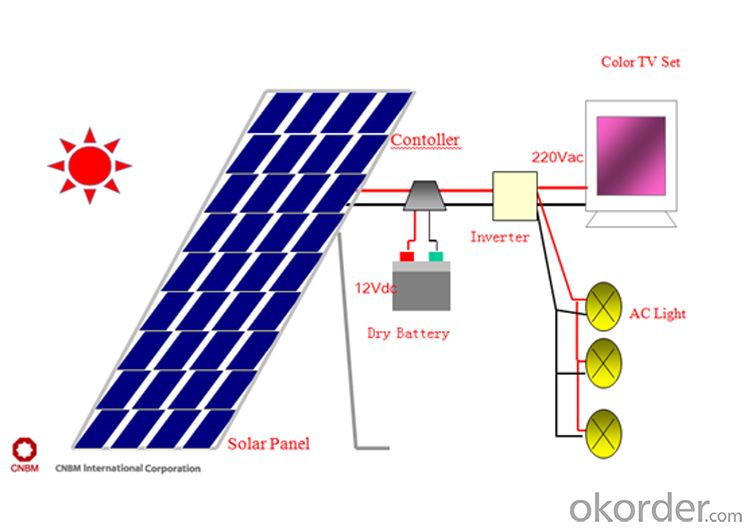
4. The Pictures of the Products
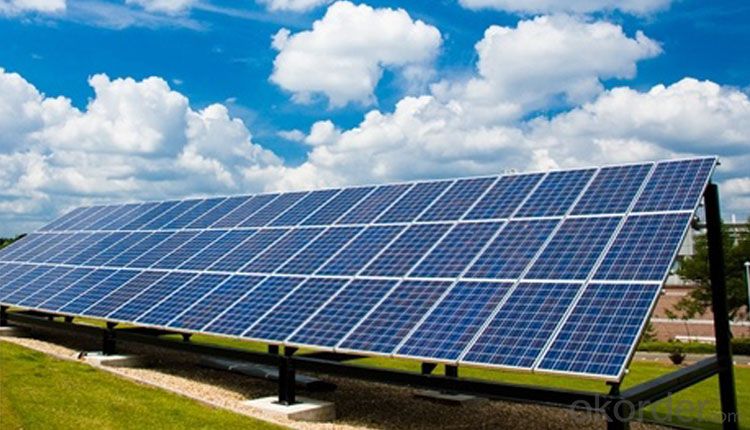
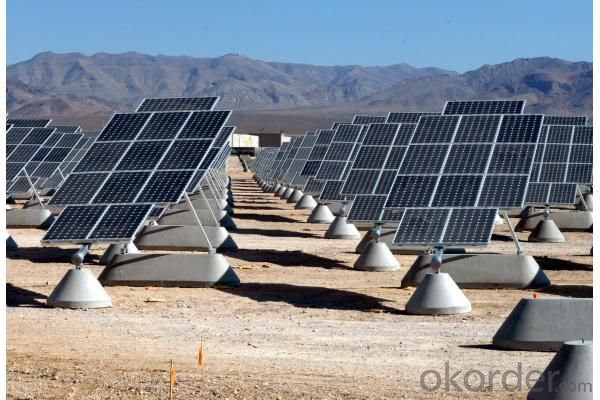
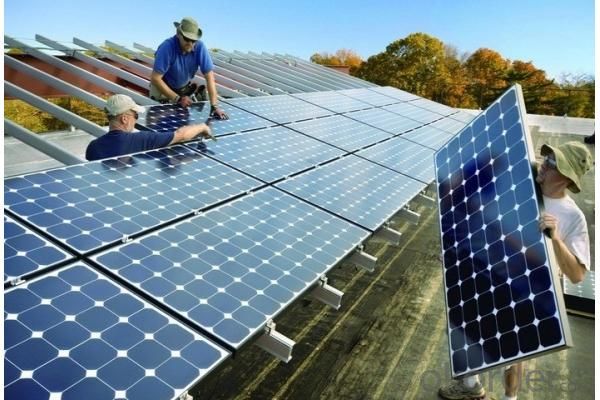
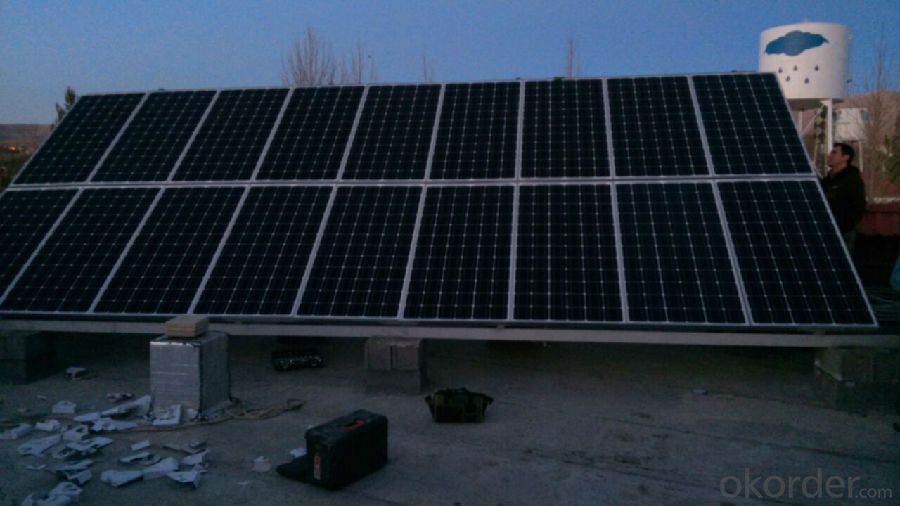
5. Packing Details
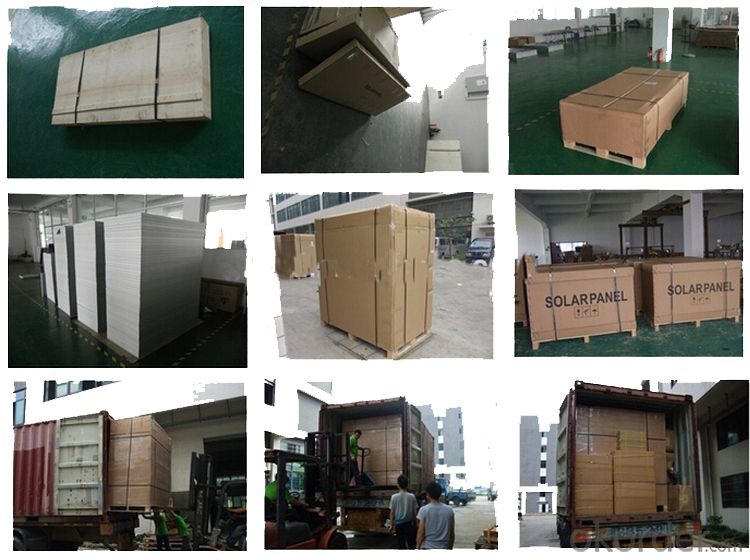
6. FAQ
1). Warranty
Our product performance guarantees for 25 years
12 years guarantee for workmanship
Timeliness of delivery
Quality Products certified (TÜV, UL, CE, ISO)
2). Can you tell me the parameter of your solar panels?
We have different series of cells with different power output, both from c-si to a-si. Please take our specification sheet for your reference.
3). How long can we receive the product after purchase?
In the purchase of product within three working days, We will arrange the factory delivery as soon as possible.
The pecific time of receiving is related to the state and position of customers.Commonly 7 to 10 working days can be served.
- Q: In terms of efficiency and cost, what is the best solar panel. I am limited in the number of panels I can put up (probably 6-8) so they must be efficient, but cost is important also.What about these panels that can collect a wider range of light frequency?
- your initial outlay for a solar panel is very large in terms of output.......somewhere around $4 a watt......ie you want a panel that will run a 00 watt lightbulb? $400.00 please. enough panels to collect enough energy to recharge a battery bank to run the house overnight? well, I've been doing a lot of research for my condo project in St Thomas and it comes out to 0-20,000 US $ for a bedroom apartment. Now, after about ten years you have made your investemnt back.... and there are a lot of government rebate programs that lower the cost.. what I have found is solar is nice, but depending on how far north you live you may only have 4 usable hours of light a day. you may very well be better with a wind generator.wind blows all the time after all...Bergy and SouthWest Windpower make two good small home units...start there
- Q: do solar panels create electricity from the ultraviolet light created from the sun? because they only have an efficientcy of like 8% and this scientist found out a way to collect the visible light also, and he says the solar panel could have an effeciency of up to 80%! so my question really is, do solar penels creat electricity from heat? do you know of anything that can?
- Not many people realise it, but Einstein did not win the Nobel Prize for either Theory of Relativity. He was awarded the prize for his work on the photoelectric effect. i.e. the ability of some materials to take photons of light and turn their energy into electricity. Now, since most of the Sun's UV rays are filtered out by the Earth's atmosphere, else we'd be able to get a sunburn in seconds walking around outside in daylight, I think there is some energy imparted to the solar cells by UV wavelengths of light, but most solar cell materials rely on the wavelengths of electromagnetic radiation we call visible. Plus, I always thought infrared wavelengths conveyed more heat energy than UV rays.
- Q: If I wanted to add solar panels to my home to produce on average, 8 kWh of electricity daily, how much do you estimate it would cost using state of the art technology?I live in Virginia (Washington DC Metro Area), and I have Dominion Power. I pay the following electric rates:Jun-Sep $0.0904/kWhOct-May $0.0776/kWhAnnual Ave: $0.0824/kWhDistribution charges add on approximately another $0.0228/kWh.How long would the ROI for an 8 kWh/day solar system be?
- Figure 8 hours of sun per day, so 8 kW-hr is a rate of kW, which is a medium sized panel, probably not enough to operate your house totally, unless you have a very small unit. Averaged over 24 hours, that is power at a rate of only 300 watts, enough for a TV. Average US home use is .2 kW, which over 24 hours is 29 kW-hr, plus you need extra for cloudy days, peak demands, and to charge batteries. You have to decide off-grid or on-grid, and if you want to (and are allowed to) sell excess power to the power company. Off gird, the cost of batteries and charge controller are a large part of the cost. On-grid, you have to purchase equipment approved by the power company to match your power with the grid. Panels will cost about $3 per watt, so for 000 watts that is $3000. Double that for installation, then add in cost of charge controller, inverter, batteries, etc. The last items depend on your alternatives, see paragraph above. .
- Q: Can solar panels be installed in areas with frequent power outages?
- Yes, solar panels can be installed in areas with frequent power outages. In fact, they can be a great solution to overcome the challenges of unreliable power grids. Solar panels generate electricity from sunlight, which means they can operate independently of the grid during power outages. By storing excess energy in batteries, solar panels can provide a reliable and uninterrupted power supply, even in areas prone to frequent outages.
- Q: Which kit did you use?How easy was it to build? How much did it cost to build the panels?How many kw or watts does it produce?Any other info on the kit or panels you built would be helpful.Thanks!
- sure, but if you don't know what you are doing you could really hurt or kill yourself. Basically you can do whatever you want on your side of the power meter and in the rare occurrence when your solar panels are producing more power that your home is using the meter will run backwards and you will be feeding power to the grid and theoretically reducing your power bill. At the very least you will be using less power from the grid
- Q: i would like to hook up a power outlet to a solar panelmy light system is 500watts will run for 8 hours/day between noon to 8PM.So what is the most effective system do I need?
- How critical is the power, and is it only lighting? If it's only lighting what the other person suggested about a SunTunnel is the best solution. Not only is it less than /0 the cost, it will be 00x as efficient. If you think about it, it's kind of silly to turn the sun's light into electricity, throwing away 80%+ of the energy in the process, then turn that back into light again, throwing away 95% of that energy in the process. Much better to just use the light directly. Or cut some ordinary skylights or windows. If you are intent on solar electricity, it would be better to install a grid-tied system, and offset the electricity from your building in general, rather than try to build a dedicated outlet for the lights. Call a professional solar installer for a free quote.
- Q: Can solar panels be installed on outdoor event venues?
- Yes, solar panels can be installed on outdoor event venues. In fact, they are often a great choice for such venues as they can provide renewable energy to power various event equipment, lighting, and sound systems. Additionally, solar panels can help reduce the environmental impact of hosting events by reducing reliance on fossil fuels and decreasing carbon emissions.
- Q: Can solar panels be used for charging electric scooters?
- Yes, solar panels can be used for charging electric scooters. By connecting the solar panels to an appropriate charge controller and then to the scooter's battery, solar energy can be harnessed and stored to power the scooter, providing a clean and renewable source of energy. However, the efficiency of solar panels may vary depending on various factors such as the size of the panel, sunlight availability, and the scooter's power requirements.
- Q: Can solar panels be used in areas with high levels of noise or vibration?
- Yes, solar panels can be used in areas with high levels of noise or vibration. Solar panels are designed to withstand various environmental conditions, including noise and vibration. However, it is important to ensure that the installation is properly secured and that the panels are not subjected to excessive shaking or impact, which could potentially damage their performance or structural integrity.
- Q: What are the different types of solar panels?
- There are primarily three types of solar panels: monocrystalline, polycrystalline, and thin-film solar panels. Monocrystalline panels are made of a single crystal structure, making them highly efficient but also more expensive. Polycrystalline panels are made up of multiple crystals and are slightly less efficient but more affordable. Thin-film panels are the least efficient but are flexible and can be used in a variety of applications.
Send your message to us
CE and TUV Approved 255W Mono Solar Panels Ipswich
- Loading Port:
- Shanghai
- Payment Terms:
- TT OR LC
- Min Order Qty:
- 10000 watt
- Supply Capability:
- 1000000 watt/month
OKorder Service Pledge
OKorder Financial Service
Similar products
Hot products
Hot Searches
Related keywords
